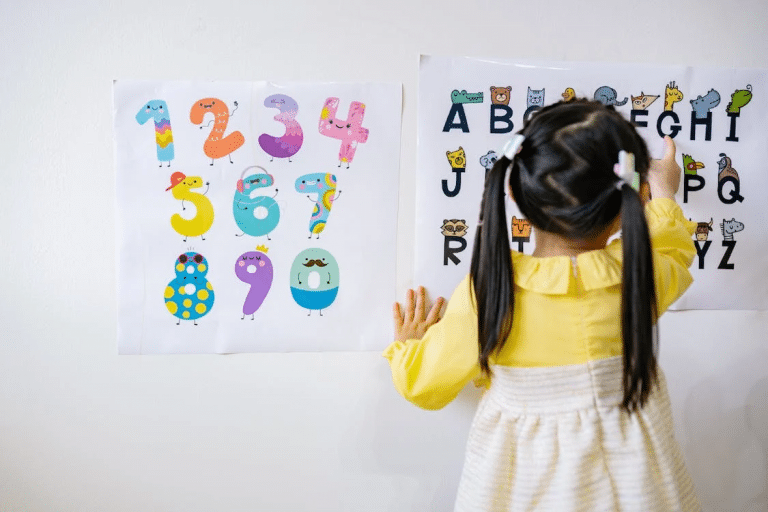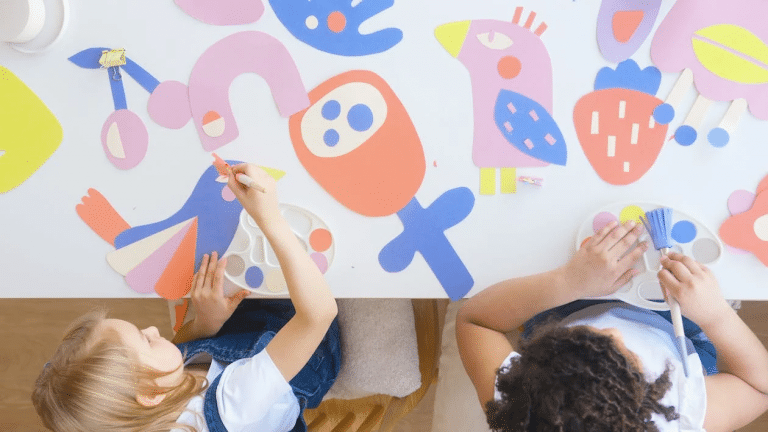Preparing Your Child for Success: 6 Essential Skills Taught in Preschool
Preparing Your Child for Success: 6 Essential Skills Taught in Preschool

Preschool education plays an important role in preparing your child for a lifetime of learning. It is a critical phase where they acquire essential academic skills and develop fundamental social, emotional, and cognitive abilities.
Envision your child, driven by curiosity and a thirst for knowledge, actively engaging with a world of colours and shapes and forming new connections. These early years represent a significant period of growth in language proficiency, creative thinking, and problem-solving skills.
Usually, children start their preschool journey at the age of three, spending approximately two years before transitioning to kindergarten. So, what do children learn in preschool? Here are 6 of the most important things.
1. Social Skills and Emotional Development
Fostering social skills is integral to your child’s ability to thrive in a community. Our teachers focus on teaching values of respect and teamwork, providing opportunities for shared play and learning. Through these interactions, children enhance their social aptitude and develop stronger language abilities and self-regulation. In moments of disagreement, our teachers guide them in resolving conflicts with grace and understanding.
During your child’s time in preschool, they should learn to understand their emotions and develop an awareness of others’ feelings. This encompasses the ability to recognise different emotions and effectively manage them along with their corresponding behaviours.
2. Language and Literacy Skills

Learning language and literacy skills are crucial to your child’s early education journey. During preschool, children are introduced to fundamental concepts such as letters, sounds, and vocabulary. Teachers use engaging techniques like storytelling, rhyming games, and interactive letter identification activities to make learning fun and exciting. In a linguistically diverse setting like preschool, children’s vocabulary rapidly expands as they learn new word definitions, grammar rules, and tenses.
Throughout the day, language and vocabulary are exchanged during activities such as circle time discussions, singing rhymes and songs, playing games, engaging in solitary and group play, exploring themed topics, and interacting with toys, equipment, and other materials.
The development of pre-writing skills activities include:
Tracing and Copying: Providing tracing sheets or encouraging children to copy simple shapes and lines helps them practice controlled movements, which is essential for forming letters.
Drawing and Doodling: Encouraging free-form drawing and doodling allows children to experiment with different hand movements and develop their unique writing style.
3. Mathematics and Numeracy
In preschool, children are introduced to fundamental math concepts through various hands-on activities and games. They learn how to count, recognize numbers, shapes, and patterns, and perform simple addition and subtraction. These activities help them develop spatial awareness, problem-solving abilities and logical thinking. Additionally, preschoolers engage in other activities like rote counting, one-to-one correspondence, classifying, sorting, and exploring different measurements such as length, capacity, weight, area, temperature, time, space, and shapes. These foundational math skills prepare children for future academic success and are also relevant in their everyday lives.
4. Fine and Gross Motor Skills

Developing fine and gross motor skills during preschool is crucial for a child’s ability to perform everyday tasks. Fine motor skills, developed through activities like drawing, painting, and crafts, are essential for tasks such as writing and other daily activities. On the other hand, gross motor skills, nurtured through activities like running and climbing, are fundamental for requiring more significant muscle movements. This early emphasis on physical development sets the stage for a child’s overall physical competence. It contributes to their overall well-being and ability to engage in various activities as they grow.
5. Creativity and Expression
Preschoolers are actively encouraged to unleash their creativity and self-expression. They engage in activities such as art, music, and imaginative play. Through hands-on experiences like painting, sculpting, and musical exploration, children can bring their unique visions to life. This not only builds fine motor skills but also increases self-confidence and nurtures their ability to think innovatively. Engaging in creative pursuits from a young age creates a sense of autonomy and self-assuredness that will serve them well in all aspects of their educational journey and beyond.
6. Critical Thinking and Problem-Solving
Preschool education plays a significant role in enhancing cognitive development and promoting critical thinking and independent problem-solving abilities in children. The curriculum is designed to encourage complex thinking, decision-making and exploration. Teachers pose open-ended questions, puzzles and activities that demand logical reasoning, empowering children to approach challenges confidently. Moreover, the way children approach learning, including their ability to focus and effectively handle frustration, contributes to their cognitive development. This balanced approach not only prepares them for future academic success but also enhances their cognitive abilities.
In summary, at Mulberry Learning, our preschool programmes are guided by a visionary curriculum that nurtures children to become active explorers, imaginative thinkers, and creative problem solvers. Our unique curriculum model, iLearn/iExplore/iExperience/iDevelop, incorporates globally recognized pedagogies such as Reggio-Emilia, Multiple Intelligences, and Habits of Mind™ and ensures the holistic development of children. Every child emerges from Mulberry Learning equipped not only with a profound understanding of core skills and knowledge but also with the intelligent thinking habits and dispositions necessary to thrive in the evolving landscape of the future world. Learn more about our acclaimed curriculum now.
Mulberry School Tour
Our Locations
Click here to visit our Contact Us page and view the preschool/infant care centres conveniently located near you.
CONNECT WITH US
USEFUL LINKS
About Us
Mulberry Learning prides itself on making the preschool experience both memorable and enjoyable while transforming a child into a competent explorer, an imaginative thinker, and a creative problem solver. Through our proprietary award-winning curriculum, unique Habits of Mind programme and dedicated staff who are passionate about imparting positive attitudes, Mulberry Learning holds strong in its promise to deliver a holistic education that nurtures the Future Ready Child.
A PREMIUM PRESCHOOL BRAND UNDER GLOBAL EDUHUB


